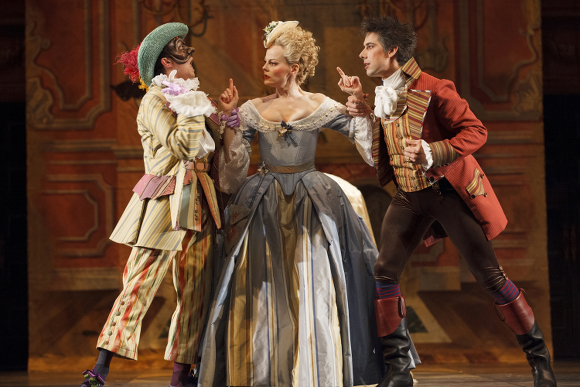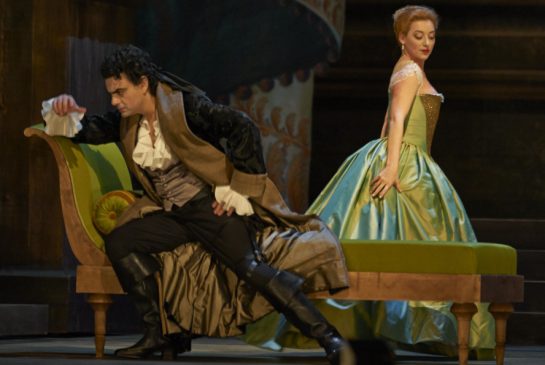There’s a lot to like in Opera Atelier’s current production of Weber’s Der Freischütz but also some things that are just plain puzzling. I enjoyed it but certain aesthetic choices made no sense at all to me.
Let’s start with the good stuff. The OA template was relaxed quite a bit, particularly in the dance department. Allowing the women to dance in point shoes allowed for a degree of choreographic flexibility that was most welcome to me. This, from a dance point of view, was the best OA production I have seen. The singing, though stylistically inconsistent, was also uniformly excellent. Meghan Lindsay’s Agathe was superb. She had much the most dramatic voice on display and, to me, was the truest to the real sensibility of the piece. Carla Huhtanen, as Aanchen, was also excellent though in such a different way that wondered whether they were in the same production. Solid singing from the men too especially Krešimir Špicer as Max who was very stylish, if not especially heroic. The design and lighting elements were also not too constrained by baroque considerations and worked pretty well.

Meghan Lindsay and Krešimir Špicer in Opera Atelier’s production of Der Freischütz (Bruce Zinger photo).
Continue reading →










